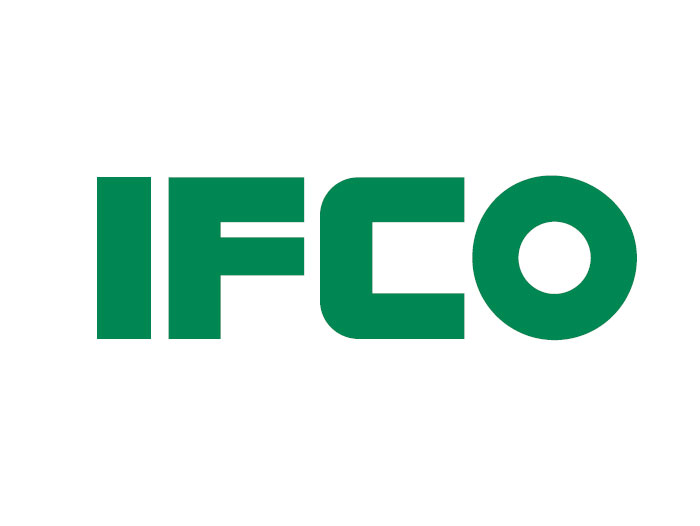IFCO Unveils Comprehensive ESG Strategy to Tackle Climate Change, Food Waste and Single-Use Packaging
November 17, 2021 | 5 min to read

Munich, Germany: IFCO, the world’s leading provider of Reusable Plastic Containers (RPCs) for fresh food packaging, presents its comprehensive ESG (Environment Social Governance) 2025 strategy to thrive in the circular economy. The main objectives include combating climate change, embracing diversity and inclusion as well as reducing food waste and single-use packaging. Along with the ESG strategy, IFCO also publishes its first standalone ESG Report. The comprehensive report focuses on key material topics for the business in the areas of Thriving Business, Thriving Planet and Thriving Society and conforms to global reporting standards including the Global Reporting Initiative, Sustainability Accounting Standards Board (SASB) and United Nations Global Compact.
IFCO’s business model fosters the principles of circular economy since the company was founded almost 30 years ago. Recently, the European Lift-Lock range of RPCs was awarded the Cradle to Cradle Certified® Silver certification. IFCO RPCs are reused up to 120 times, cleaned, disinfected, and granulated at the end of their life cycle to produce new containers. This process offers numerous environmental benefits. For example, IFCO enables significant CO2, water and energy savings compared to single-use packaging, as well as reducing solid and food waste. As the global market leader in the sustainable transport of fresh food, IFCO wants to enable producers, retailers, and consumers to do their part to protect the environment and create a resource-efficient supply chain. In 2021 alone, IFCO customers reduced the carbon footprint in their supply chain by up to 60% compared to using single-use packaging.
New strategy intensifies efforts for resource-efficient supply chains
IFCO has already taken numerous measures to make its business operations more environmentally friendly. For example, materials are recycled and, at the end of their life cycle, reused to produce new IFCO RPCs. This is one of the reasons why IFCO has received Cradle to Cradle certification at Gold level in Material reutilization. In addition, IFCO reduces CO2 emissions by optimizing its network and using multimodal transport. The company is also improving technologies in its washing centers to maximize water reuse and reduce energy consumption through closed-loop systems. IFCO also works with food banks around the world, reducing food waste and supporting people in need.
“We have already achieved considerable success with our measures to be more environmentally friendly. At the same time, we acknowledge that it is time for further action. Together with our partners, we are working every day to make our business model even more sustainable. Our new ESG strategy helps us to fulfil our purpose to make fresh grocery supply chains sustainable and have a meaningful positive impact on our planet and society”, explains Michael Pooley, CEO at IFCO.
IFCO has also recently become a signatory of the UN Global Compact supporting its Ten Principles, reinforcing its commitment to human rights, labor standards, the environment and anti-corruption.
IFCO’s ESG strategy to thrive in the circular economy focuses on three main pillars:
- Thriving Business – IFCO aims to make fresh food supply chains resilient to the challenges of the future through circular economy, innovation, and best-in-class governance. Specifically, the company aims to double the environmental benefits it generates in its customers’ supply chains as well as implementing adequate policies, trainings and expanding customer collaboration programs.
- Thriving Planet – In order to further protect and regenerate natural resources, IFCO is going beyond the benefits of its Share & Reuse model. For example, the company aims to achieve carbon-neutral operations by 2025 and net zero emissions across its value chain by 2040. In addition, IFCO is working to eliminate waste completely.
- Thriving Society – IFCO is a safe, diverse and inclusive employer. The company has a target of 40% women in management positions and aims to achieve best in class employee satisfaction. In addition, IFCO is a pioneer in health and safety and works to reduce food waste through cooperation with food banks worldwide and innovative solutions.
As detailed in the ESG report, IFCO´s 2025 goals are closely aligned with the United Nations Sustainable Development Goals (SDGs). Specifically, the circular essence of its business model supports its customers in achieving SDG 12, Responsible Consumption and Production. IFCO´s ESG strategy encompasses its ambition to thrive in the circular economy and together with its partners, cease the opportunity to create a better future for its employees, customers, and society.
About IFCO
IFCO is the leading global provider of reusable packaging solutions for fresh foods, serving customers in 50+ countries. IFCO operates a pool of over 325 million Reusable Plastic Containers (RPCs) globally, which are used for over 1.9 billion shipments of fresh fruits and vegetables, meat, poultry, seafood, eggs, bread, and other items from suppliers to grocery retailers every year. IFCO RPCs ensure a better fresh food supply chain by protecting freshness and quality and lowering costs, food waste and environmental impact compared to single-use packaging. More: www.ifco.com. Follow us on LinkedIn @IFCO SYSTEMS and Twitter @IFCOSystems.
